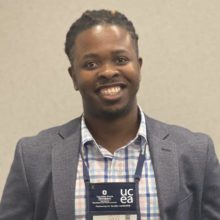

As this academic year unfolds, and we are forced to grapple with varying degrees of teacher shortages across the country, many educational policy conversations are centered on finding sustainable solutions.
International teachers have and continue to be one of North Carolina’s fastest-growing teaching populations. Furthermore, this group of teachers continues to have the lowest attrition rate of all teaching groups, making them an ideal solution. Much less known, however, are the intricacies surrounding how and why these teachers are often recruited and their experiences living and teaching in our schools.
International teachers are recruited through BridgeUSA, a J-1 Cultural Exchange Program offered through U.S. Department of State approved sponsors. Sponsors recruit qualified teachers, often the best in their schools, seeking professional opportunities, often from developing countries such as Jamaica, Colombia, and the Philippines, to teach in the U.S. for three years.
The impact of international teachers
Having the highest retention rate of all teaching groups, international teachers have made significant impact and contributions to North Carolina’s public school system. On one hand, these individuals allow their students — who might never leave their counties, state, or even their country — to learn about the culture and way of living in their home countries. On the other hand, the low attrition rate means these individuals provide a sense of stability and consistency for students.
My professional interactions have allowed me to engage with numerous administrators across the state, and one of the first questions I am frequently asked is, “Where is my accent from?” Upon answering, “Jamaica,” I am often informed of administrators having international teachers (especially Jamaican teachers) in their schools who are ranked among the best and most effective. These arguments are also supported by findings from the Education Policy Initiative at Carolina who, in 2014, found international teachers to be the most effective educators in both reading and math at the elementary level in North Carolina.
The impact of these teachers has not gone unnoticed. Evidence of this can be seen in the numerous acknowledgements and awards Jamaican teachers have received:
- Just recently, Shawna Kay Lawes, was named second runner up to the Teacher of the Year in Cumberland County.
- Jermaine Howell, a Jamaican teacher at Cedar Fork Elementary School, was named Teacher of the Year for his school, and one of ten finalists for Wake County Teacher of the Year.
- One of my high school teachers Pauline Lindo was named Lenoir County Teacher of the Year for 2022-2023.
- Prior to these two recent victories, Davia Johnson was named Middle School Teacher of the Year and runner-up to the Teacher of the Year in Vance County in 2019.
- To top these accomplishments, Kedecia Stewart in 2018 was named the Vance County Schools Teacher of the Year and North Carolina Central Regional Teacher of the Year.
Experiences of international teachers
While these accomplishments highlight the impact and effectiveness of Jamaican teachers and, by extension, global educators, much less acknowledged and addressed have been the lived experiences and challenges these individuals face, which vary district to district, including:
- Unlike other recruiting programs which often provide relocation allowances, international teachers are often responsible for their relocation expenses, which include finding apartments and associated deposits, car arrangements, and additional expenses that arise from their dependents accompanying them.
- Several of my colleagues and I, while paid on the same salary scale as Americans, have not been entitled to health benefits and had to instead pay for health, dental, and optical insurance through arrangements made by our sponsoring programs.
- Several of my international peers have told me they have been ineligible for Teacher of the Year recognition. This exclusion is a form of discrimination, especially since these teachers work as hard, if not harder, than their native counterparts.
- Colleagues have told me about experiences in which programs and administrators have used their visa status was a weapon of power. For example, a colleague who had a medical event was told to return to work against medical advice or return to their home country.
What do international teachers want?
I’d like to echo calls for better working conditions for these teachers. Having engaged with countless international teachers, the following solutions are worth considering:
- One of the major issues affecting international teachers is the uncertainties surrounding their future after five years of teaching on the visa program. Creating pathways that could possibly lead to or even guarantee green card sponsorship after teaching for three to five years is welcomed.
- Equal access to and eligibility to benefit from state and district funded health insurance and retirement schemes.
- Relocation allowances will significantly support the adjustment process for these educators and their families, while also preventing them from starting their journey with high amounts of debt. And while these programs have in the past offered financial assistance, these were offered as loans which are deducted monthly from these teachers’ bank accounts.
These solutions represent a few of the most pressing issues affecting international teachers.
As district and school leaders scramble desperately to find teachers, I remind these individuals that international teachers are more than mere solutions to the teacher shortages and retention issues plaguing North Carolina schools, and should be treated as such.



